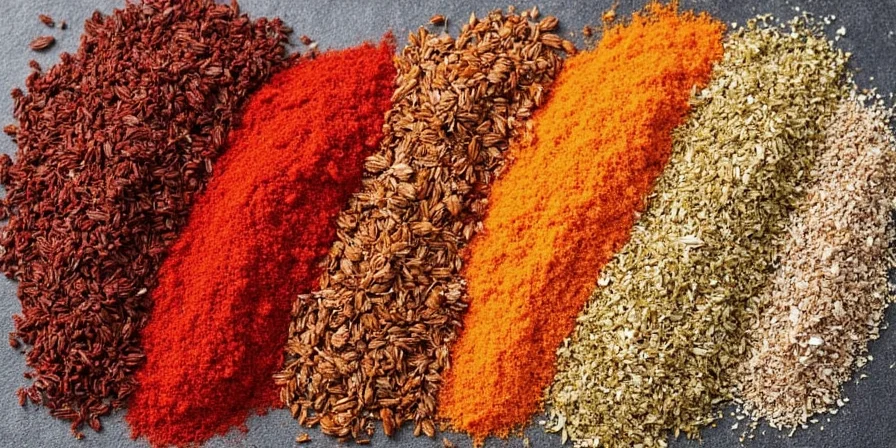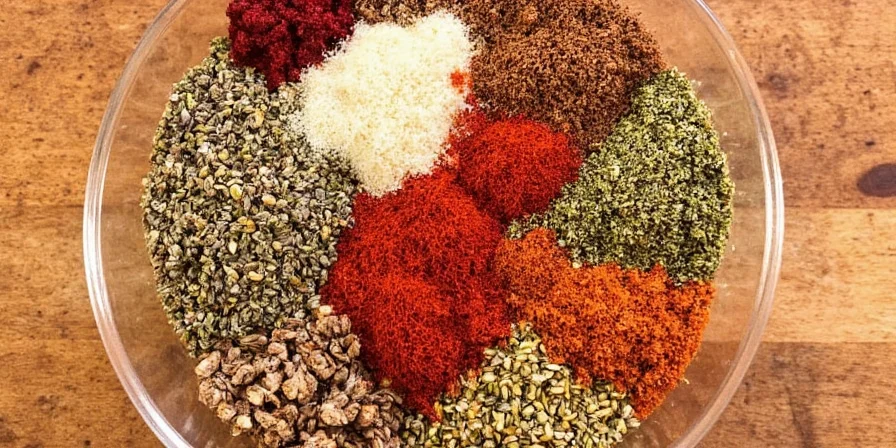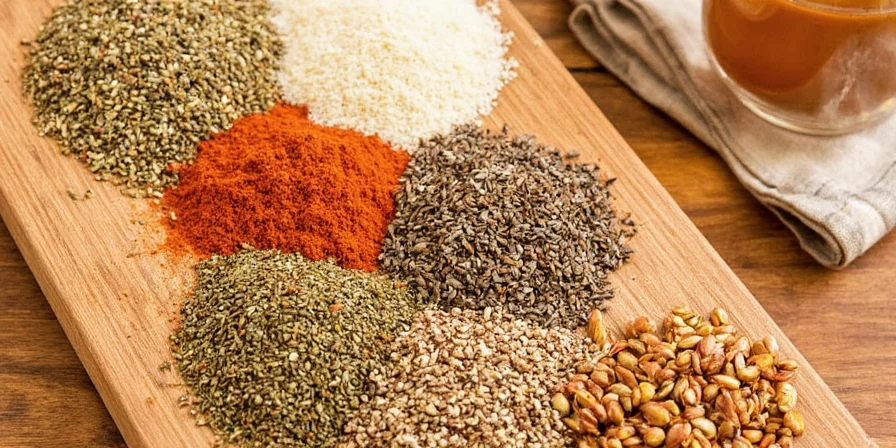The Secret Behind Flavor: How to Master the Art of Using and Storing Marinate-Specific Spices

Have you ever wondered why some dishes just sing with flavor, while others fall flat? The answer might be hiding in the spice cabinet—specifically, in the jar labeled marinate. Yes, that mysterious little jar that seems to be used for everything from meat to vegetables to even tofu. But what exactly is in there, and how can you get the most out of it? In this blog, we’ll dive deep into the world of marinate-specific spices, uncovering the secrets of storage and usage hacks that will elevate your cooking game to a whole new level.
What Exactly is in That Marinate Jar?
Before we get into the nitty-gritty of storage and usage, it’s important to understand what exactly is in that mysterious marinate jar. Often, it contains a blend of spices specifically chosen for their ability to penetrate meat and vegetables, enhancing their flavor from the inside out. Common ingredients in a marinate blend might include:
- Garlic
- Black pepper
- Coriander
- Mustard seeds
- Cumin
- Salt
- Chili powder
But the exact composition can vary depending on the region or the chef’s personal preference. For example, a Korean marinate might include gochugaru (Korean chili flakes), while an Indian one might have turmeric and cumin. The key is that these spices are chosen not just for their flavor, but for their ability to work with acidic or oily marinades to deeply flavor the protein or vegetable.
Why Marinate-Specific Spices Matter
Marinating is more than just a way to add flavor—it’s a science. The right spices can transform a bland piece of meat into a tender, juicy, and flavorful masterpiece. But if you’re using the wrong spices or storing them improperly, you might be missing out on that magic.
1. The Science of Flavor Penetration
Spices like garlic and black pepper are fat-soluble, meaning they work best with oils or fats. That’s why marinating meat in an oil-based marinade can help the spices penetrate deeper into the meat fibers. On the other hand, acidic ingredients like vinegar or citrus juice can also help break down the meat’s proteins, allowing the spices to be absorbed more easily.
2. The Role of Salt in Flavor Enhancement
Salt is a must-have in any marinate blend. It not only enhances flavor but also helps to draw out moisture from the meat, allowing the marinade to penetrate more effectively. However, it’s important to use salt in moderation, as too much can cause the meat to become dry and tough.
3. The Magic of Mustard Seeds
Mustard seeds are a hidden gem in marinate blends. They contain a compound called sinigrin, which can help tenderize meat and add a subtle, nutty flavor. When used in combination with vinegar or lemon juice, mustard seeds can also help to break down the meat’s structure, making it more tender and juicy.
Proper Storage of Marinate-Specific Spices
Now that we’ve covered what marinate-specific spices are and why they matter, it’s time to talk about how to store them properly. Proper storage is key to preserving the potency and flavor of your spices, ensuring that they perform at their best every time you use them.
1. Keep Spices in a Cool, Dark Place
Heat and light are the enemies of spices. Exposure to either can cause them to lose their potency and flavor over time. That’s why it’s best to store your spices in a cool, dark place—ideally in a pantry or spice cabinet that’s away from the stove and oven.
2. Use Airtight Containers
Once you’ve opened a jar of marinate-specific spices, it’s important to transfer them to an airtight container. This will help to keep out moisture and air, which can cause the spices to clump or lose their potency. Glass jars with tight-fitting lids are ideal for this purpose.
3. Avoid Moisture
Moisture is another enemy of spices. It can cause them to clump and lose their potency. That’s why it’s important to avoid storing spices in humid areas, like near the sink or in the fridge. If you do need to store spices in the fridge, make sure they’re in an airtight container and away from any moisture sources.
4. Label and Date Your Spices
Spices can lose their potency over time, so it’s a good idea to label and date your spice containers. This will help you keep track of when you opened them and how long they’ve been in storage. As a general rule, most spices can last between 6 months and a year if stored properly.
Using Marinate-Specific Spices Like a Pro
Now that we’ve covered storage, it’s time to talk about how to use marinate-specific spices like a pro. Whether you’re marinating meat, vegetables, or tofu, the right technique can make all the difference.
1. Choose the Right Marinade Base
The base of your marinade is just as important as the spices. Acidic ingredients like vinegar, lemon juice, or yogurt can help break down the meat’s structure, allowing the spices to penetrate more effectively. Oily ingredients like olive oil or sesame oil can help carry the flavor deep into the meat.
2. Let It Sit
Patience is a virtue when it comes to marinating. The longer you let your meat or vegetables sit in the marinade, the more flavor they’ll absorb. However, it’s important to note that marinating for too long can cause the meat to become tough or rubbery. A general rule of thumb is to marinate for 30 minutes to 2 hours for most meats, and up to 4 hours for tougher cuts.
3. Don’t Overdo It
While it’s tempting to add more spices to your marinade for extra flavor, it’s important to avoid overdoing it. Too much of any one spice can overpower the other flavors and make the dish inedible. A good rule of thumb is to use the spices in moderation, and to taste as you go.
Common Mistakes to Avoid When Using Marinate-Specific Spices
Even the most experienced cooks can make mistakes when it comes to using marinate-specific spices. Here are some of the most common mistakes to avoid:
- Using old or stale spices: Stale spices can ruin the flavor of your dish. Always use fresh spices for the best results.
- Over-marinating: As mentioned earlier, over-marinating can cause the meat to become tough or rubbery. Stick to the recommended time frames for best results.
- Ignoring the balance of flavors: A good marinade should be a balance of sweet, sour, salty, and spicy. Avoid using only one type of flavor, or your dish may end up being too one-dimensional.
Marinate-Specific Spice Blends from Around the World
Marinate-specific spice blends are used in cuisines around the world. Here are a few examples of popular marinate blends and their key ingredients:
| Cuisine | Blend Name | Key Ingredients |
|---|---|---|
| Korean | Gochujang Marinade | Gochugaru, garlic, ginger, soy sauce, sesame oil |
| Indian | Butter Chicken Marinade | Cumin, coriander, turmeric, garlic, yogurt |
| Mexican | Adobo Marinade | Cumin, oregano, garlic, onion powder, paprika |
| Italian | Garlic and Herb Marinade | Garlic, rosemary, thyme, olive oil, salt |
Each of these blends has its own unique flavor profile, but they all share one thing in common: they’re designed to enhance the flavor of the food they’re being used on.
Conclusion
Marinate-specific spices are a powerful tool in any cook’s arsenal. When used properly, they can transform even the blandest cut of meat into a flavorful masterpiece. But to get the most out of them, it’s important to store them properly and use them with care. By following the tips and techniques outlined in this blog, you’ll be well on your way to becoming a master of marinate-specific spices.
So go ahead—grab that jar of marinate-specific spices, and let your culinary creativity shine. Whether you’re grilling, roasting, or searing, the right spices can take your dish from good to unforgettable.

Further Reading
Want to learn more about spice storage and usage hacks? Check out our other blogs on the subject for even more tips and tricks to elevate your cooking game.
Happy cooking, and remember—flavor is the key to a great meal!











 浙公网安备
33010002000092号
浙公网安备
33010002000092号 浙B2-20120091-4
浙B2-20120091-4